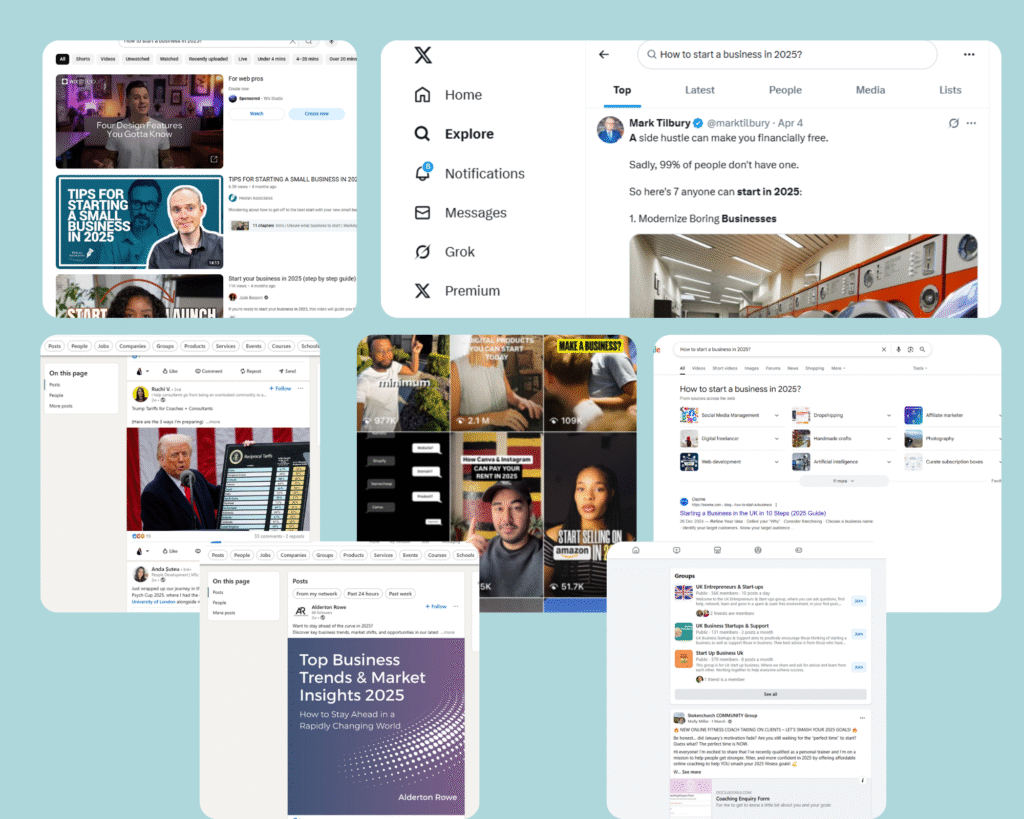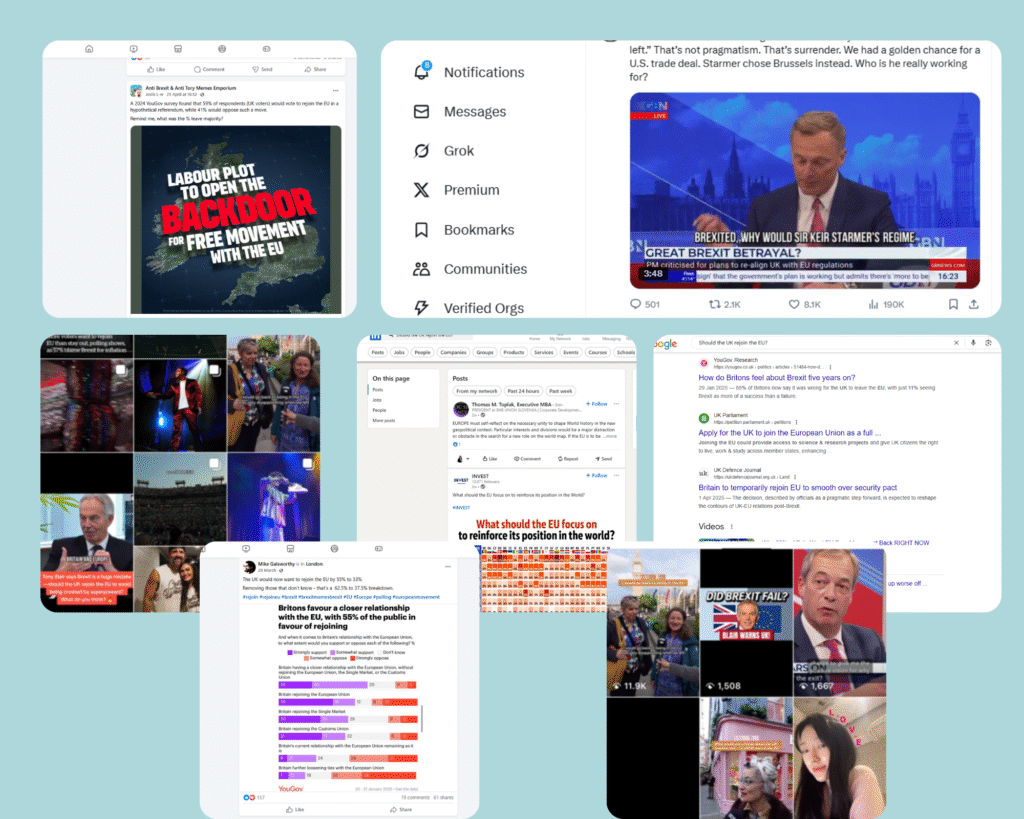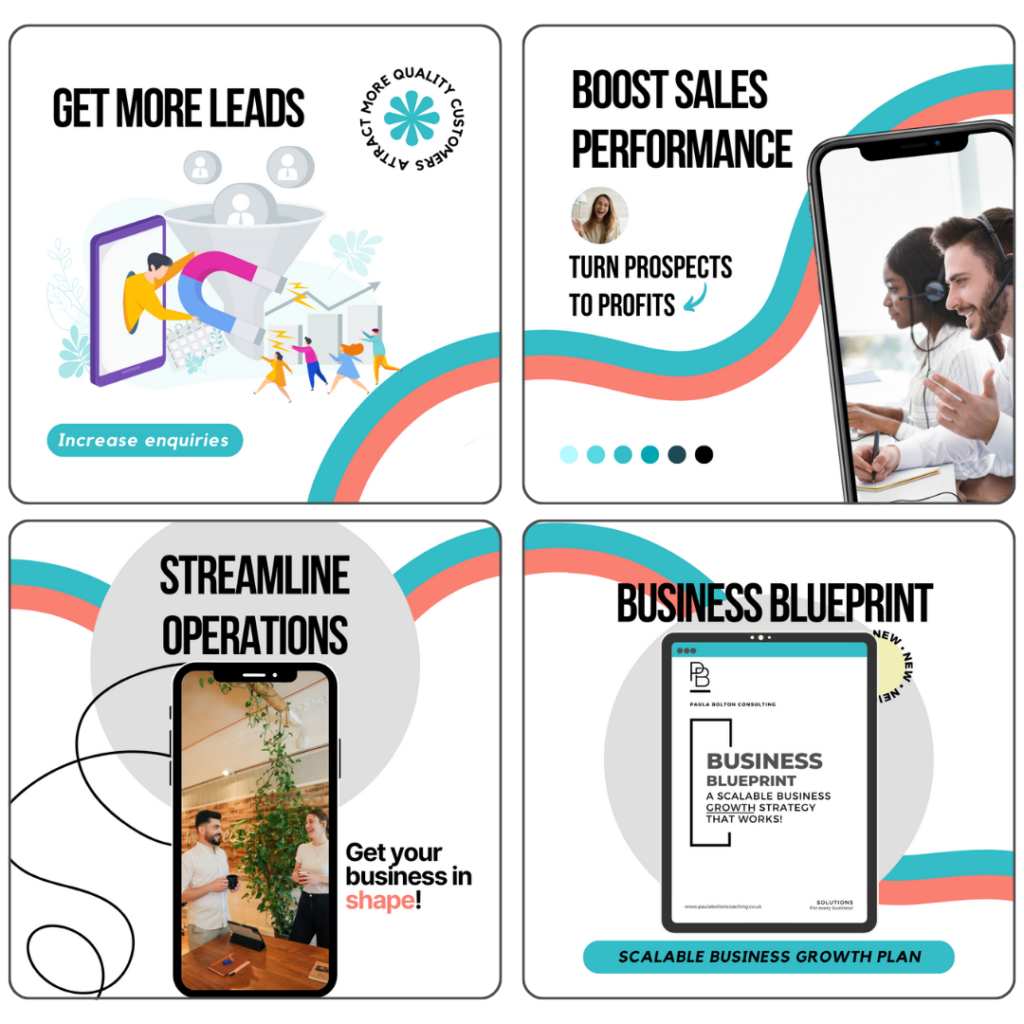The internet isn’t one truth. It’s thousands of tiny, conflicting, sometimes slightly hysterical (or depressing) truths… all shouting over each other.
Most people don’t even question where they’re searching and they often assume the first few results are “the truth.”
Without even realising it, people curate their reality based on where they hang out online.
This affects not just what people know, but what they believe, what they buy, how they vote, how they feel about the world.
I decided to run a little experiment, partly out of curiosity, and partly because lately too many people have been blindly reposting and sharing Tweets, (or should I say X’s? Is that even what we’re calling them now?) with me.
I wanted to see what would actually happen if I asked the same simple questions across different platforms.
Spoiler: not all advice is created equal.
And it’s a bit terrifying how much it depends on where you search.
The Experiment
I asked two big questions across Google, LinkedIn, Facebook, Instagram, YouTube, X (Twitter), and just to be thorough, I threw ChatGPT in there too at the end.
Question 1: How to start a business in 2025?
Question 2: Should the UK rejoin the EU?
My goal was simple: see what pops up first. How is the advice framed? Is it serious, shallow, emotional, fact-based, or just a giant pile of psychological / motivational garbage?
I screenshotted everything (some of it was so skewed), and here’s what I found.
Part 1: I asked the internet "how to start a business in 2025". Here’s what it told me
Quick platform breakdown:
| Platform | First page result (summary) | Tone/Approach (summary) |
|---|---|---|
| SEO-driven blogs giving practical steps (choose structure, register, set up banking, etc.) | Structured, factual, but quite surface-level, focused more on ticking boxes than inspiring action | |
| YouTube | Videos mixing hype (“get rich in 30 days”) with actual real talk | Human, accessible, mixes real advice with a bit of “you can do it!” hype |
| X (Twitter) | Soundbites: “Sell digital products and live your dream!” | Soundbite-heavy, hype over depth, feels like a shortcut culture |
| Trend reports about markets and business sectors | Professional, assumes prior experience, more “what’s coming” than “how to start” | |
| Random mix of video guides and entrepreneur groups | Personal, supportive, but messy , often outdated advice mixed with good ideas | |
| Reels shouting about passive income and Canva side hustles | Speed > substance, very “sell the dream” |
Platform: Google
First result: SEO-driven blogs giving practical steps (choose structure, register, set up banking, etc.)
Tone/Approach: Structured, factual, quite surface-level. Focused more on ticking boxes than inspiring action.
Platform: YouTube
First result: Videos mixing hype (“get rich in 30 days”) with actual real talk.
Tone/Approach: Human, accessible. Mixes real advice with a bit of “you can do it!” motivation.
Platform: X (Twitter)
First result: Soundbites like “Sell digital products and live your dream!”
Tone/Approach: Soundbite-heavy and hype-driven. Feels very shortcut-focused.
Platform: LinkedIn
First result: Trend reports about markets and business sectors.
Tone/Approach: Professional and assumes prior experience. Focuses more on trends than on how to actually start.
Platform: Facebook
First result: Random mix of video guides and entrepreneur groups.
Tone/Approach: Personal and supportive but messy. Often outdated advice mixed with good ideas.
Platform: Instagram
First result: Reels shouting about passive income and Canva side hustles.
Tone/Approach: Speed over substance. Very “sell the dream” focused with little depth or serious business foundations.

What it shows (and why you should care):
1. Social media has become a search engine.
Especially for Gen Z, (late 1990s and early 2000s), and increasingly Millennials, (1981- 1996) too, they’re not Googling first. They’re TikTok’ing, Instagramming, YouTubing and even LinkedIn searching for advice.
Which means if you’re running a business, marketing yourself, or just trying to sell a product, you’d better seriously think about where your advice or content shows up.
Otherwise, you’re basically shouting into the wrong room.
2. Each platform has a completely different “truth.”
Same question. Wildly different answers.
LinkedIn says “watch the global markets.”
Instagram says “start a Canva side hustle and retire by August.”
Google says “open a bank account and good luck.”
YouTube says “believe in yourself but also maybe get a financial plan.”
It’s honestly mad how much your view of reality changes depending on where you hang out online.
3. Echo chambers are real.
People don’t realise how much they’re being influenced by where they look, not just what they search.
Start a business in 2025? On Instagram, you’ll be convinced you need to sell a Notion template and move to Bali. On LinkedIn, you’ll think you need to build a SaaS platform and raise venture capital.
Same person, same goal, two completely different lives, just because of the search bar they chose.
4. Social trust is shifting.
People are trusting influencers and creators more than companies or traditional experts. If your marketing still sounds like “official corporate speak,” you’re invisible.
Real people, telling real (or at least good-sounding) stories, are who people are following and engaging with.
🧠 Key findings from recent studies
If you think I’m exaggerating about how much your “truth” can be shaped by the platform you search first… here’s what real research says:
1. Online searches can reinforce misinformation
A study published in Nature found that individuals who searched online to evaluate false or misleading news were actually more likely to believe it afterward.
👉 The very act of searching made them more confident in the misinformation’s accuracy.
Source: Nature study
2. Search engines can spread misinformation
Research by Chirag Shah highlights that search engines, just like social media platforms, can prioritise sensational or engaging content, not necessarily the most accurate content.
👉 This means your first click could be the beginning of a very wobbly worldview.
Source: CommonLit overview
3. Search behaviour influences trust in information
A recent study called “Query Smarter, Trust Better?” found that the way you type your search question matters.
👉 Poorly-worded queries return worse answers, and reinforce wrong beliefs even faster.
Source: arXiv research paper
Part 2: "Should the UK rejoin the EU?"
If you want a quick way to lose your sanity, ask the internet this.
Quick platform breakdown:
| Platform | First result | Tone |
|---|---|---|
| News articles, polls, Parliament petitions | Balanced, factual, “here’s what’s happening” rather than overly emotional | |
| YouTube | Emotional news-style videos, political commentary | Emotional, visually dramatic, semi-serious and blends news footage with personal opinion pieces |
| X (Twitter) | Tribal warfare: “Brexit BETRAYAL!” vs “EU SLAVERY!” | Aggressive, emotional, no middle ground |
| Calm economic reports about losses and trade | Professional, data-led — low emotion, high rationality | |
| Community groups, memes, angry nostalgia posts | Emotionally charged, mixes stats with deeply personal, often angry commentary | |
| Memes, random interviews, chaos | Scattergun, feels less political, more reactive/entertainment-driven |
Platform: Google
First result: News articles, polls, Parliament petitions
Tone: Balanced and factual. “Here’s what’s happening” rather than overly emotional.
Platform: YouTube
First result: Emotional news-style videos and political commentary
Tone: Emotional, visually dramatic, semi-serious. Blends news footage with personal opinion pieces.
Platform: X (Twitter)
First result: Tribal warfare between “Brexit BETRAYAL” and “EU SLAVERY” posts
Tone: Aggressive, emotional, no middle ground.
Platform: LinkedIn
First result: Calm economic reports about losses and trade
Tone: Professional and data-led. Low emotion, high rationality.
Platform: Facebook
First result: Community groups, memes, and angry nostalgia posts
Tone: Emotionally charged. Mixes statistics with deeply personal and often angry commentary.
Platform: Instagram
First result: Memes, random interviews, chaotic content
Tone: Scattergun. Feels less political and more reactive or entertainment-driven.

ChatGPT: The unexpected winner
At the end of this slightly unhinged internet tour, I decided to ask ChatGPT the same two questions.
Honestly? For me, it gave the best answers.
Starting a business in 2025: It gave practical, structured advice. It didn’t hype side hustles, tell me how to earn £1million in 30 days and move to Fiji, or push a specific agenda. It actually reminded me about things like GDPR compliance, insurance, and validating an idea, you know, real stuff that matters.
Should the UK rejoin the EU?: It summarised both sides, pro and anti, in a factual, non-emotional way. No shouting. No doom. No “you are so left-wing / right-wing” – Just “here’s the situation, here’s what people argue, here’s why it’s not simple.”
In a world where every platform either wants to hype you up, enrage you, or funnel you into an echo chamber, ChatGPT felt surprisingly and refreshingly… level-headed.
What it shows
1. Polarisation is still king.
Especially on X and Facebook. You’re either 100% Brexit was a tragedy, or 100% Brexit saved Britain from the EU lizard people. There’s no middle ground anymore. Pick a side or get shouted at.
If you try to sit neutral? You’ll get ignored. Platforms reward opinion. Fence-sitters do not trend.
2. Emotions beat facts for engagement.
Posts with bold words like “MISTAKE”, “BETRAYAL”, and “FREEDOM LOST” outperformed any careful, reasoned analysis by miles.
Even when a post shared a calm statistic (like “55% of Brits regret Brexit”), the comments immediately descended into emotional rants.
3. Visual simplicity wins.
Big text, dramatic colours, one key message, that’s what wins the scroll war. (Especially on Instagram, X, YouTube.)
Meanwhile, LinkedIn was over there writing long-form essays no one but economists would ever read….
(Respectfully. But still.)
ps. I do really like LinkedIn….
4. People are tired, but nostalgic.
There’s a real “we miss the good old days” vibe creeping through a lot of Facebook and X posts.
If you’re marketing anything political, historical, or even just tapping into emotions about change and loss, nostalgia is a secret weapon right now.
💡5 insights to take away from this
1. Speed beats depth on most platforms
Instagram, X, and parts of YouTube prioritise quick, viral, feel-good (or outrage-driven) content.
Building a real, sustainable business?
That message isn’t what’s rewarded by the algorithms – fast, emotional hooks are.
2. The personal brand blur is real
On visual platforms like Instagram, it’s getting harder to tell the difference between someone who’s built a thriving business and someone who’s just good at looking like they have.
👉 Followers ≠ founders. Always worth remembering.
3. Search engines and “professional” platforms are not neutral
Google and LinkedIn still surface more structured, “serious” advice, but even then, search engine optimisation (SEO) means content often prioritises visibility over real value.
👉 What ranks highest isn’t always what’s most helpful.
(And studies show poorly worded searches can pull lower-quality answers.)
4. First platform seen = first belief formed
Where you search first massively shapes what you believe next.
Search on Instagram first? You’ll be convinced passive income is quick and easy.
Searching on LinkedIn first? You’ll think you need an investor pitch deck just to start.
👉 The internet doesn’t shape one reality, it shapes thousands of conflicting ones.
5. Trust has shifted, but critical thinking hasn’t caught up
People now trust people (influencers, creators, personal brands) more than they trust companies or institutions.
But that trust often forms without questioning who the person is or why they’re credible.
👉 To build genuine trust, it’s not about flashy claims. It’s about showing real values, real stories, and real proof, even if it’s a rough-around-the-edges photo, or a lesson learned the hard way.
Remember:
The most trusted voices online aren’t always the best-informed.
And the loudest advice isn’t always the wisest.

Final thoughts
- Where you search shapes what you believe.
- Who you trust shapes what you decide.
And if you’re not paying attention?…….
You might be getting fed a version of reality that suits the platform or the poster, not you.
Next time you go looking for advice, maybe ask yourself two things:
Who’s answering this?
And what do they want me to believe?
- Look at all view points from different platforms before making decisions.







